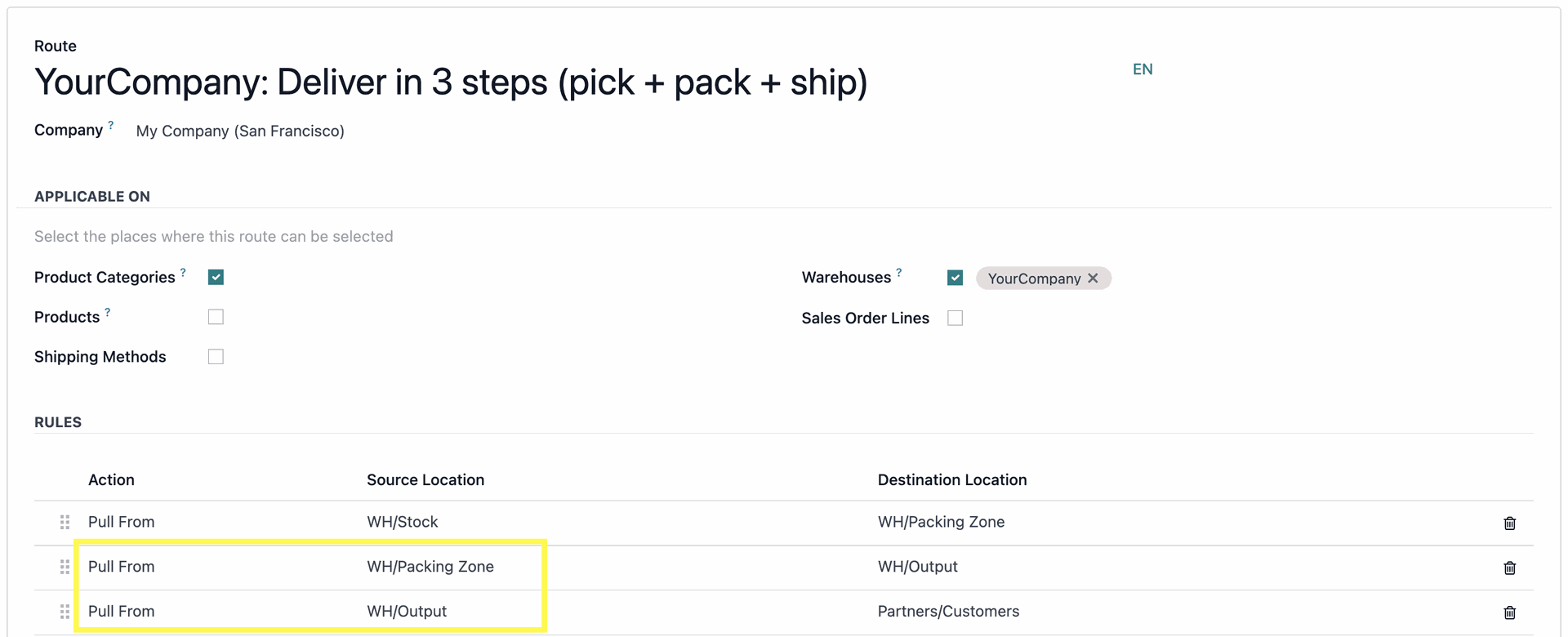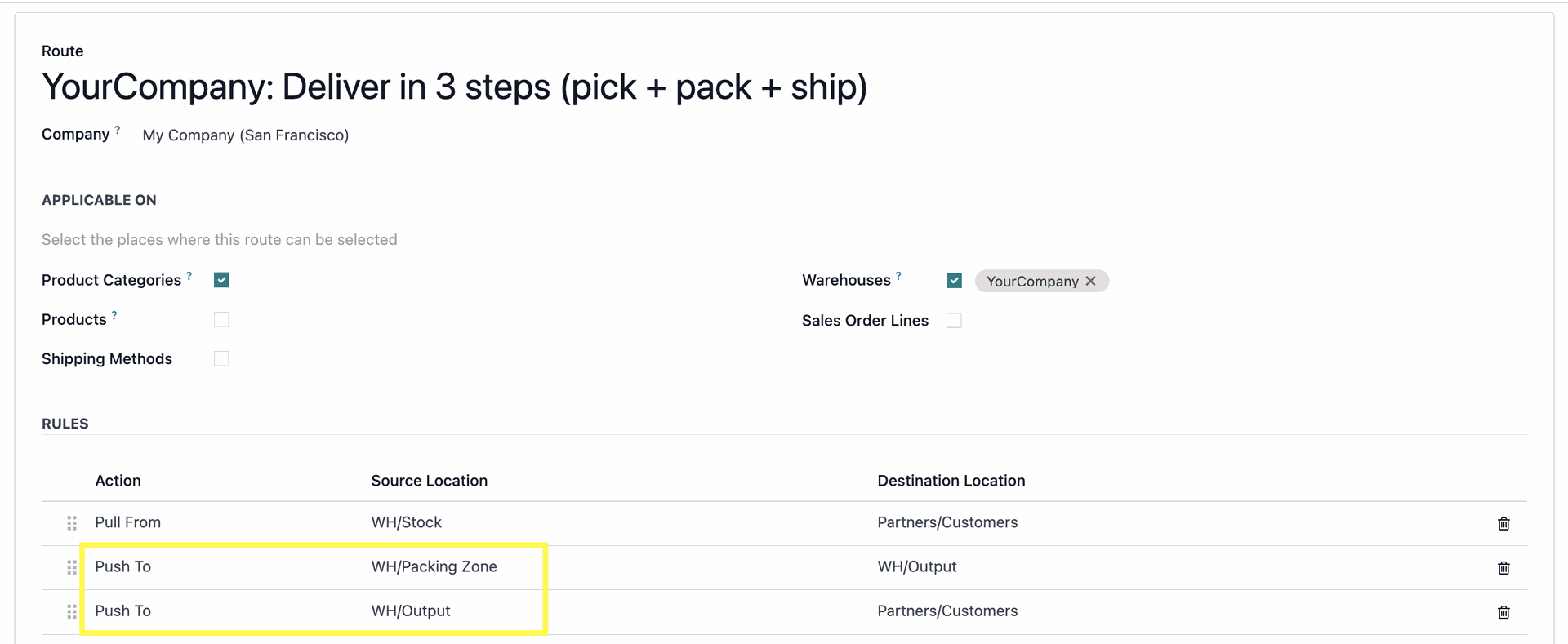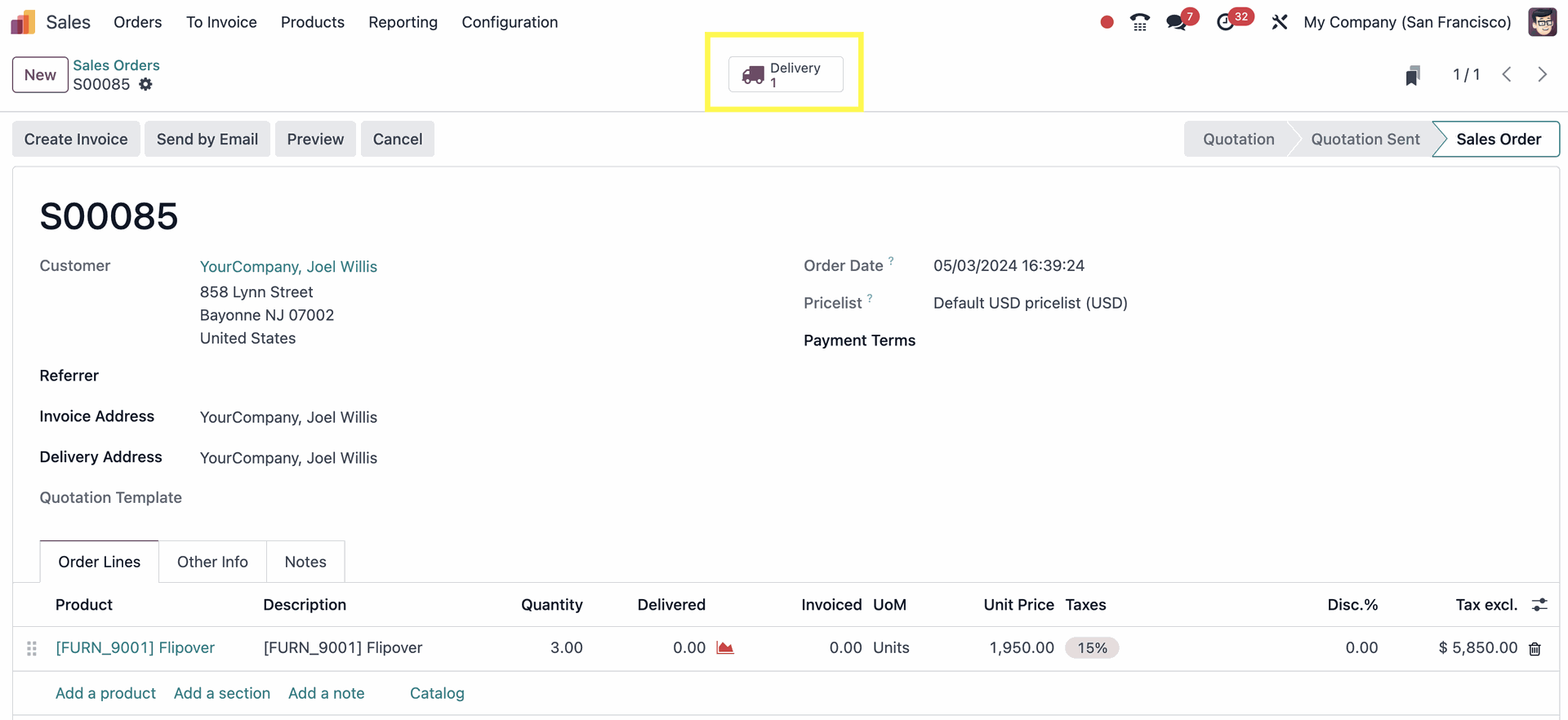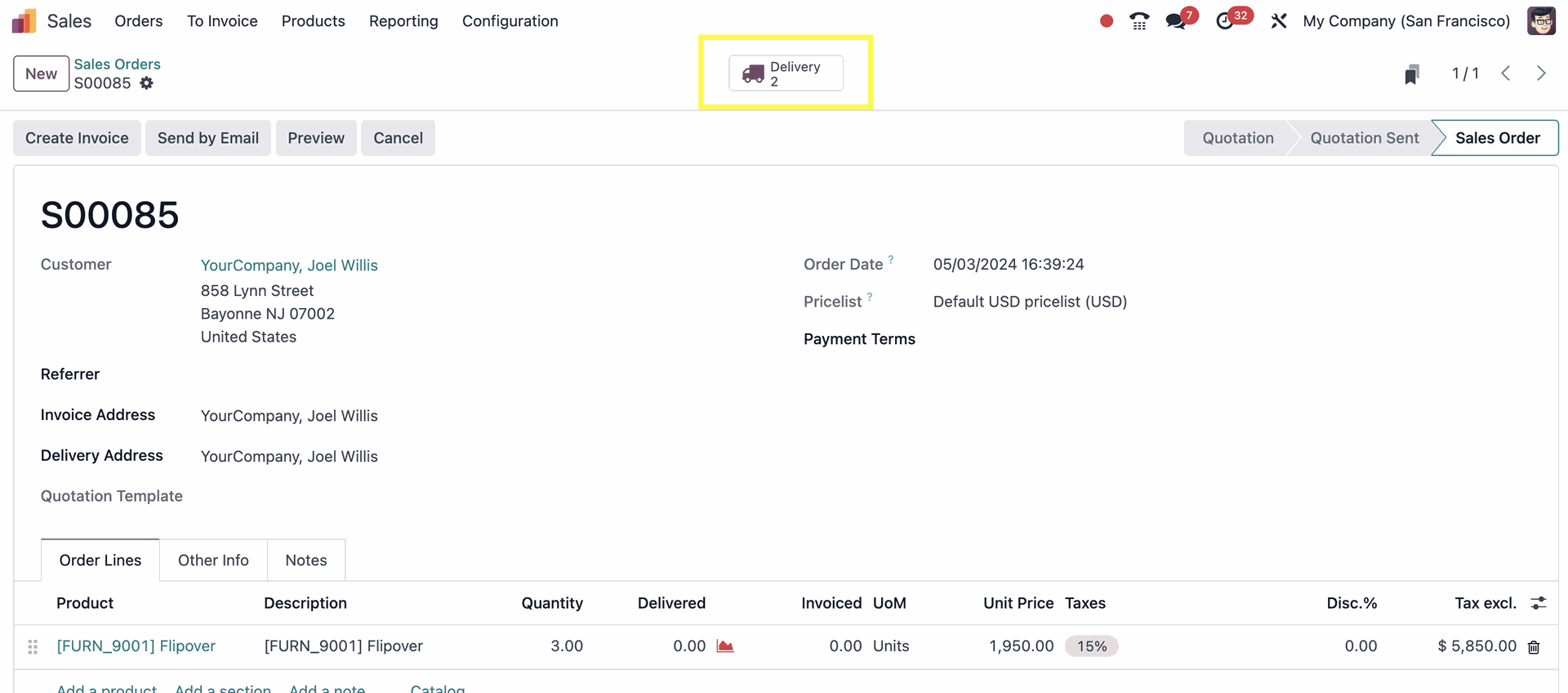I want to understand how this feature works and how it changes multi-step routes.
Odoo is the world's easiest all-in-one management software.
It includes hundreds of business apps:
- CRM
- e-Commerce
- Akuntansi
- Inventaris
- PoS
- Project
- MRP
Pertanyaan ini telah diberikan tanda
Explanation:
The transfers associated with multi-step routes were created in the following order using PULL rules:
3-step deliveries:
- Delivery Order (OUT)
- Packing Operation (PACK)
- Picking (PICK)
2-step deliveries:
- Delivery Order (OUT)
- Picking (PICK)


Even though transfers are created in one order (ship, pack, pick), they are processed in the reverse order (pick, pack, then ship). To minimize the number of transfers created in advance and increase flexibility, transfers are now being created as follows:
- Pick
- Pack (when using a 3-step delivery process)
- Ship
The next transfer is created after the previous transfer is validated. Odoo uses a push action instead of a pull action.

Example:
I'll use a three-step route to show the workflow. I create a sales order and confirm it. Notice only one transfer is made; it's the pick.


After I validate the pick, the pack is created. There are two transfers now. The delivery order will be created after I validate the transfer.


Create a test database at https://www.odoo.com/trial to test this new behavior!
This update significantly enhances the clarity and logic of multi-step routes. I'm currently integrating v17.0 sh in my organization and would love to implement this enhancement. I believe it will require a custom module, so I would appreciate any guidance on which parts of the models, and which models are involved in this process.
Will this interfere with existing customized 3 or 4 step routes?
Menikmati diskusi? Jangan hanya membaca, ikuti!
Buat akun sekarang untuk menikmati fitur eksklufi dan agar terlibat dengan komunitas kami!
Daftar| Post Terkait | Replies | Tampilan | Aktivitas | |
|---|---|---|---|---|
|
17.2 Inventory Release Notes: View Empty Locations
Diselesaikan
|
|
2
Mei 24
|
2895 | |
|
|
1
Mei 24
|
2965 | ||
|
|
1
Apr 25
|
2491 | ||
|
|
2
Mei 25
|
6316 | ||
|
|
1
Apr 25
|
2251 |
